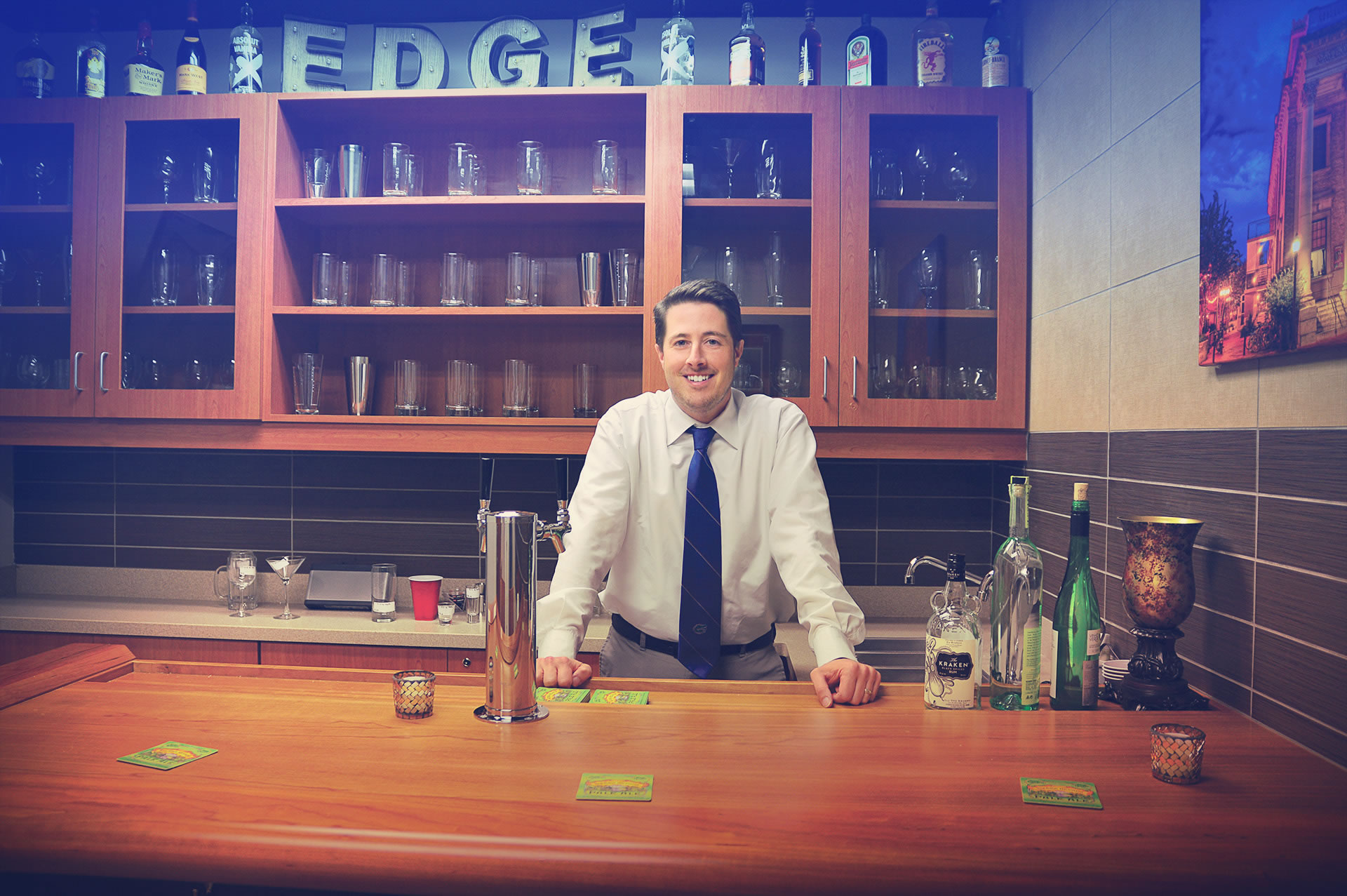 HHP - Update me in site_config > General Configuration
HHP - Update me in site_config > General Configuration
Binge drinking across college campuses is an ill-fated behavior that university communities are trying to manage on a regular basis. There is a lot of discussion on what can be done to help students create better drinking habits and one department at the College of HHP has fashioned an innovative way of doing just that.

HHP’s department of Health Education and Behavior recently opened a research center in Yon Hall, next to the Florida Gym. In this new space consisting of 9,200 square feet, the most talked about component is the simulated lab that replicates a working bar or pub. Yes, HHP is home to a new, state-of-the-art research lab that can be used to conduct first hand studies on the effects of addictive drinking behaviors among young adults in the Gainesville community.
One of HHPs new faculty members, Dr. Robert Leeman is leading the charge for this research endeavor. Dr. Leeman hails from Yale Medical School to join the team at HHP and assist in re-focusing the Department of Health Education and Behavior with department chair, Dr. Jalie Tucker.
“Coming to Gainesville was a clear choice for me. UF is so strong academically and offers many resources for collaboration across campus,” says Dr. Leeman. “Additionally, to work directly with a department chair who is a true leader in the addiction field is unparalleled.”
So, how does the simulated lab work? Participants are recruited via on campus flyers, word of mouth or other social media-based efforts. They go through an intensive screening process. Once they are approved for this study, they will spend a three hour period in the lab with HHPs researchers and other participants. During this time they are to behave how they would in any other drinking establishment. They have alcoholic and non-alcoholic beverage options available and can make their own selections. Following the three hour window, participants must stick around in the Yon Hall facility for four hours and must have a breathalyzer reading of .02 before they can leave. Participants are provided transportation to and from the facility.
Dr. Leeman’s goals for this kind of research seem quite simple, but in the complicated world of addiction, nothing is truly simple.
“My hope is to find new interventions to reduce or stop excessive consumption behaviors with addictive substances. I want to do my part to enhance intervention and at the same time get a handle on who is at higher risk of partaking in addictive behavior. It would be a massive win to offer prevention alternatives before addictions begin,” adds Dr. Leeman.